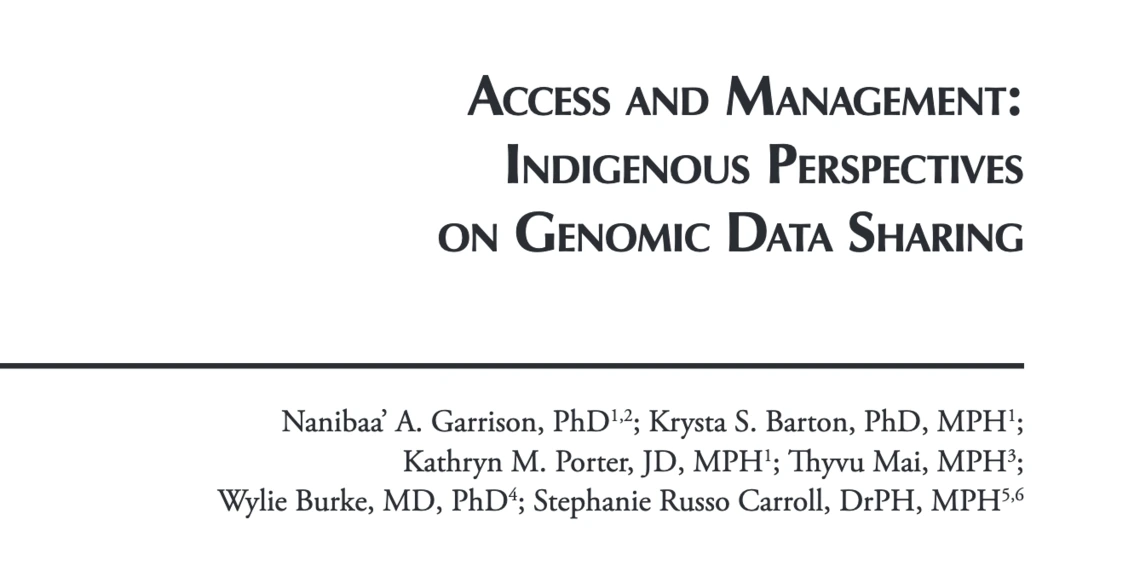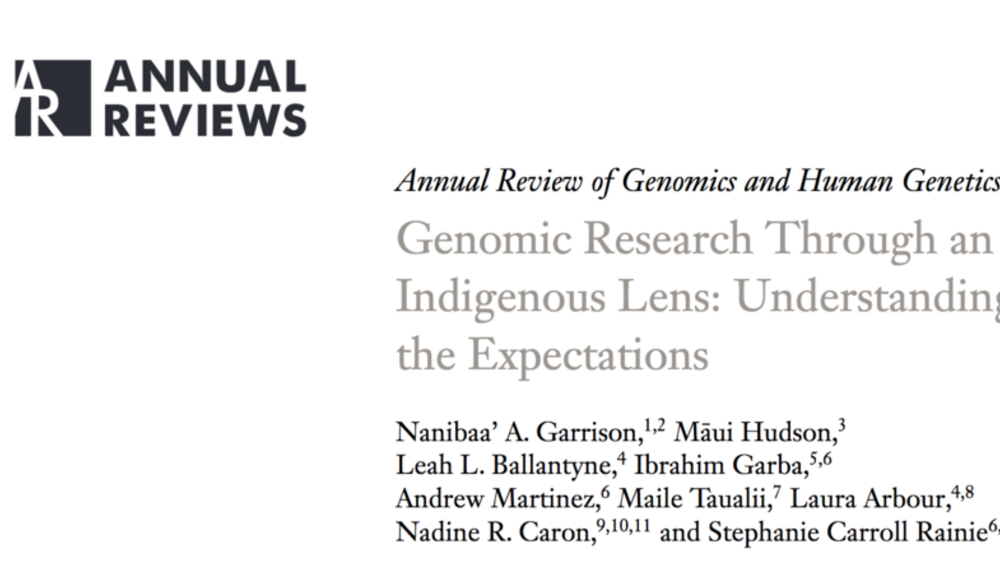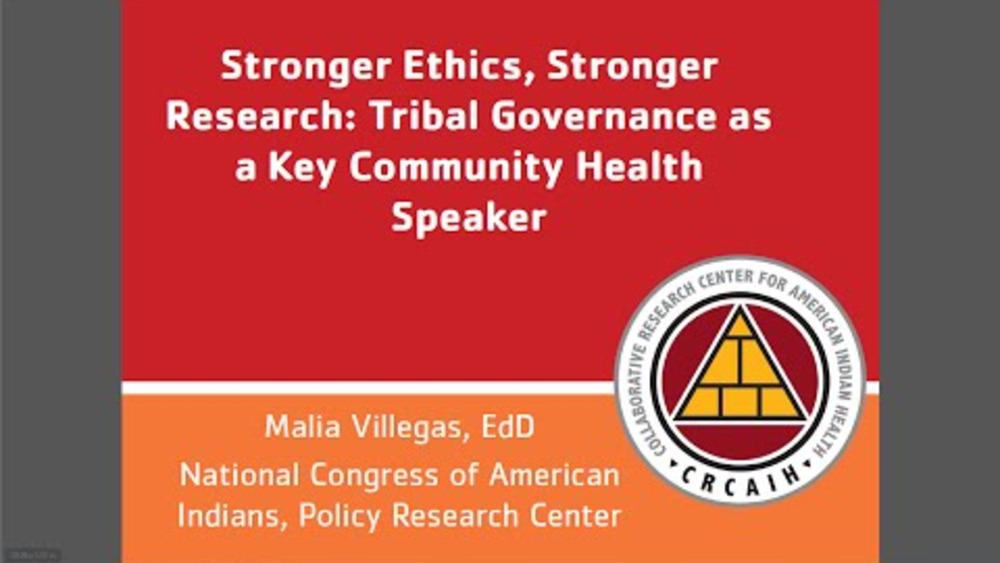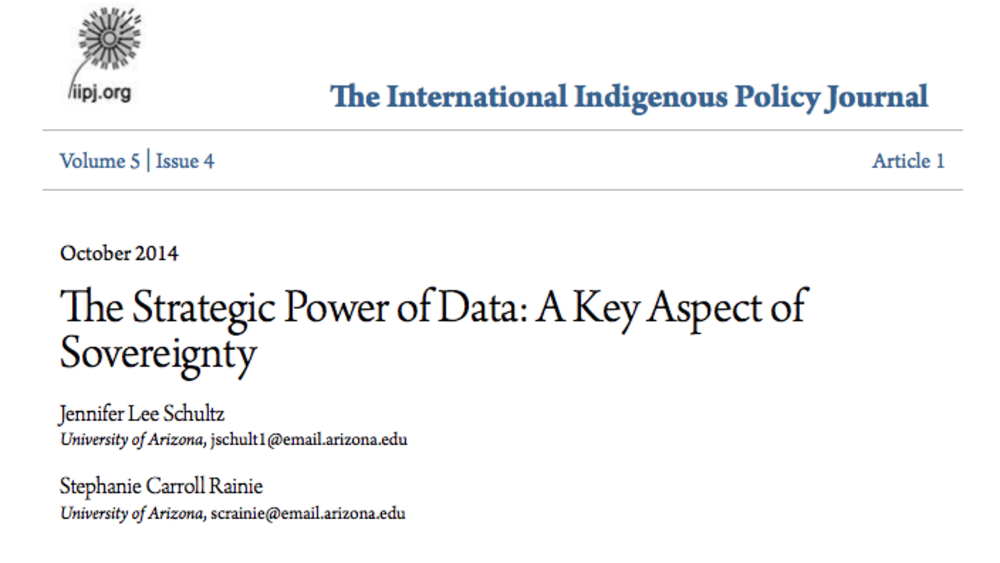As genomic researchers are encouraged to engage in broad genomic data sharing, American Indian/Alaska Native/Native Hawaiian (AI/AN/NH) leaders have raised questions about ownership of data and biospecimens and concerns over emerging challenges and potential threats to tribal sovereignty. Using a community-engaged research approach, we conducted 42 semi-structured interviews with tribal leaders, clinicians, researchers, policy makers, and tribal research review board members about their perspectives on ethical issues related to genetics in AI/AN/NH communities. We report findings related to perspectives on genetic research, data sharing, and envisioning stronger oversight and management of data. In particular, participants voiced concerns about different models of data sharing, infrastructure and logistics for housing data, and who should have the authority to grant access to data. The results will ultimately guide policy-making and the creation of guidelines and new strategies for tribes to drive the research agenda and promote ethically and culturally appropriate research.
Additional Information
Garrison, N. A., Barton, K. S., Porter, K. M., Mai, T., Burke, W., & Carroll, S. R. (2019). Access and Management: Indigenous Perspectives on Genomic Data Sharing. Ethnicity & disease, 29(Suppl 3), 659–668. https://doi.org/10.18865/ed.29.S3.659




